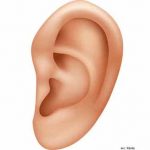NEWS on ear implants
Prevalence of hearing loss
and hearing aid provision in the
Gutenberg Health Study
Hearing is a basic skill needed to participate in daily life. Hearing loss therefore often significantly limits the quality of life. Nevertheless, there are hardly any epidemiological data on the prevalence of hearing disorders in Germany. The study examined the prevalence of hearing impairment and the actual provision of hearing...
A new generation of optical cochlear implants is expected to improve hearing performance
Cochlear implants are not only used in children born deaf, but increasingly also in adults with hearing loss. The implants take over the function of the cochlea and bypass the sensory cells. Thus, they directly stimulate the nerve cells of the auditory nerve. A speech processor breaks down sound into...
Brain stimulation boosts hearing in rats with ear implants
Study identifies neurons that can improve sound perception, which could explain the variation in performance in people with cochlear devices. Stimulating neurons that are linked to alertness helps rats with cochlear implants learn to quickly recognize tunes, researchers have found. The results suggest that activity in a brain region called...
Locus coeruleus activity improves cochlear implant performance
Cochlear implants (CIs) are neuroprosthetic devices that can provide hearing to deaf people. Despite the benefits offered by CIs, the time taken for hearing to be restored and perceptual accuracy after long-term CI use remain highly variable. CI use is believed to require neuroplasticity in the central auditory system, and...
Sensitive drill for hearing implants
Inserting the implant into the inner ear is not without risks, as facial nerves can be injured in the process. Empa researchers have developed a new type of "smart" drill that minimizes this risk by automatically switching itself off when near nerves. Methods of "advanced manufacturing" could also lead to...
Optogenetic cochlear implant to improve hearing
A research group from the Göttingen Cluster of Excellence Multiscale Bioimaging is working on an optogenetic cochlear implant (oCI). Electric cochlear implants (eCIs) are used by more than one million people worldwide and enable those affected to understand speech in a quiet environment. But those affected are known to have...
The sensitivity of bone conduction for dental implants
Dental implants are connected to the alveolar bone by osseointegration. Dental implants could be used as a potential bone conduction (BC) hearing assistive device in the mouth. However, the BC threshold of dental implants has not been reported. The present study aimed to examine the pure tone auditory thresholds of...
Textile replacement for tympanic membrane and hip endoprosthesis
tympanic membrane: Textile researchers at TU Dresden have developed a novel drumhead implant made of fibers. In tests conducted by the developers, the bioinspired innovation performed significantly better than conventional implants. The textile membrane enables a complete, permanent and lifelike reconstruction of the eardrum (D Aibibu). Tests have shown that...
Germany: Specialty association certifies cochlear implant centers
According to the professional association, around 50,000 people in Germany are deaf, and another 250,000 have at least a 50 percent hearing impairment. If sufficient understanding of speech is not possible with a hearing aid, a CI can restore hearing and understanding in many cases. A CI is not an...
Find NEWS and PUBLICATIONS here according to your interests or use the search box.









